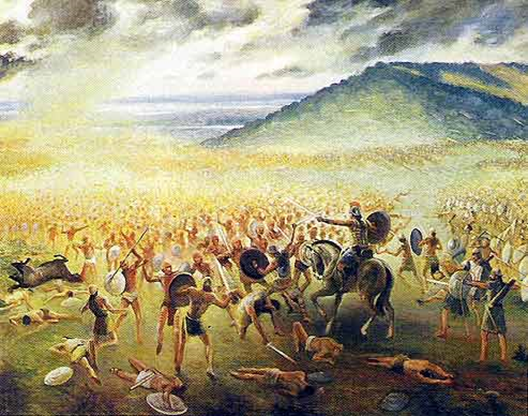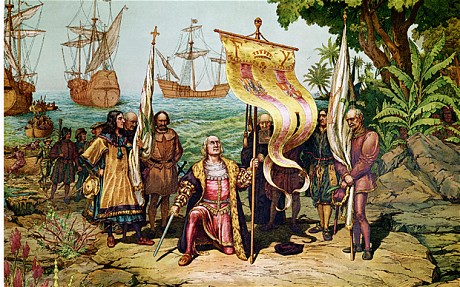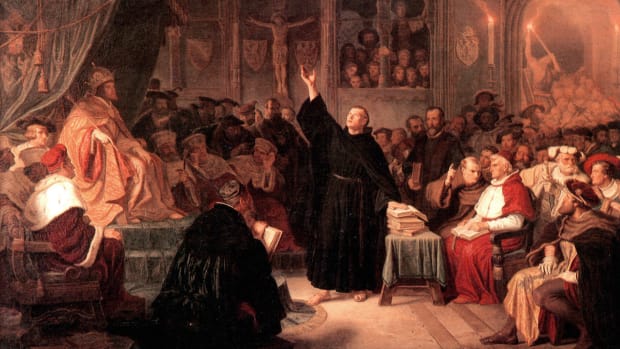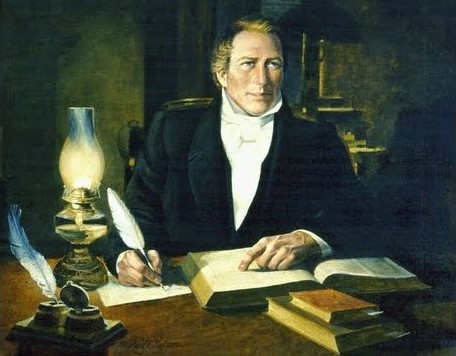To accompany your Come Follow Me study for January 22-28
In addition to reading the indicated chapters from 1 Nephi this week, you may enjoy:
- Reading the corresponding material from the Book of Mormon Institute Student Manual at
- Looking at the additional resources at Book of Mormon Central at Come Follow Me 2024: 1 Nephi 11–15 | Book of Mormon Central
- Watching the following videos:
If you would like a Kahoot game related to this material which you could use for personal study or use with your family or your class, click here: https://create.kahoot.it/share/1-nephi-11-15/5e560ca1-2e1f-4970-b12d-8977b57fd94a. (To use it with a group, after clicking on this link, you will need to log into Kahoot, creating a free account if you have not done so previously, then click on the blue “Start” button.)
Points to Ponder in 1 Nephi 11-15
1. How much in these chapters do you think is speaking of things from the past, how much is speaking of current events, and how much is still in the future?

2. We are encouraged to look for “principles” as we read the scriptures—general statements of truth that are universally applicable. They can often be phrased as “if/then” statements—for example, “If one lives the Word of Wisdom, then he will be healthier and have the Spirit more abundantly with him,” or “If one pays his tithing, then the Lord will open the windows of heaven for him.”

The same principles could simply be stated as “Living the Word of Wisdom will make one healthier and bring the Spirit more abundantly into his life,” or “When one pays his tithing, he has the promise that the Lord will open the windows of heaven for him.” The Lord has also invited us to look for “prophecies and promises” in the scriptures. What are the most significant principles, prophecies, and promises that you find as you read 1 Nephi 11-15 and in what verses do you find them? What practical applications can you suggest for these same principles, prophecies, and promises in our lives today?
3. If you had to pick just three favorite verses out of these chapters, which would they be? Why?

4. How many events from American history can you identify in chapter 13?
5. What reasons do we have to think that Columbus was inspired in his discovery of America?

6. What appears to be the major reason the American colonies won their respective revolutionary wars?


7. Why does 1 Ne. 13:5 speak of “a church which is most abominable above all other churches,” when 1 Ne. 14:10 tells us “there are save two churches only”?
8. What do you think are some of the most important “plain and precious things” which were taken away from the gospel by “the great and abominable church”? How and why would they have taken those parts away? (13:26-28)

9. Does 14:10 mean that all who are not Latter-day Saints belong to the church of the devil? Explain.
10. What do you believe the “other books” of 13:39 are?

11. What is the Joseph Smith Translation of the Bible? What importance does it have for us?

12. According to chapter 14, Nephi had a prophetic preview of what New Testament book? What evidence do we have that changes have occurred in that book since it was first written?
13. Why does 14:2 indicate that converted gentiles would be considered part of Lehi’s seed, when Lehi was of the tribe of Manasseh and almost all Latter-day Saints in North America are identified as being of the tribe of Ephraim in their patriarchal blessings?
14. Where today do you see the attitude displayed by Laman and Lemuel, who didn’t understand Lehi’s teachings because they hadn’t asked the Lord, but hadn’t asked Him because they already knew He wouldn’t answer them? (15:2-9)

15. How could Nephi say what he does in 15:35, when D&C 76 makes clear that there are not just two possible destinations but many kingdoms of glory?

Possible Answers to Points to Ponder Concerning 1 Nephi 11-15
1. How much in these chapters do you think is speaking of things from the past, how much is speaking of current events, and how much is still in the future?
It would appear that 1 Ne 11-1 Ne 13:36 is largely in the past. 13:37 to 14:12 could be considered current. The balance of chapter 14 would be largely future. Chapter 15 brings us back to Nephi’s present, where he attempts to explain his vision to his brothers.
2. We are encouraged to look for “principles” as we read the scriptures—general statements of truth that are universally applicable. They can often be phrased as “if/then” statements—for example, “If one lives the Word of Wisdom, then he will be healthier and have the Spirit more abundantly with him,” or “If one pays his tithing, then the Lord will open the windows of heaven for him.”
The same principles could simply be stated as “Living the Word of Wisdom will make one healthier and bring the Spirit more abundantly into his life,” or “When one pays his tithing, he has the promise that the Lord will open the windows of heaven for him.” The Lord has also invited us to look for “prophecies and promises” in the scriptures. What are the most significant principles, prophecies, and promises that you find as you read 1 Nephi 11-15 and in what verses do you find them? What practical applications can you suggest for these same principles, prophecies, and promises in our lives today?
Selected principles, prophecies, and promises could include the following, though practical applications have been left to the reader’s own imagination and inspiration.
- Meditation can lead to revelation. (11:1)
- The “fruit” of the gospel, or gifts of the Spirit, are “most desirable above all things” and “the most joyous to the soul.” (11:22-23)
- Faith leads to purification (12:10-11)
- Unbelief leads to darkness and idleness and filthiness (12:23)
- Pride and yielding to temptations, or walking in the devil’s “broad roads”, as opposed to the “strait and narrow” path, leads to destruction. (12:17-19)
- The majority will often be wrong. (12:18—the building is great and “spacious,” to accommodate the multitudes who wish to enter it.)
- Desires for expensive clothing and money and harlots are of the devil (13:7-8)
- Humility brings divine blessings and the power of the Lord (13:16)
- The freedom we enjoy is God-given (13:16-19)
- The Bible is of great worth (13:23)
- Those who seek to bring forth Zion shall have the gift and power of the Holy Ghost and shall be saved if they endure to the end. Those who publish peace and tidings of great joy shall be “beautiful upon the mountains.” (13:37)
- Studying the Book of Mormon can restore to us much truth lost from the Bible (13:35-36)
- A study of the Book of Mormon and other modern scriptures will increase our faith in the Bible. (13:39)
- Gentiles can become honorary Nephites (14:2) and will be free from captivity if righteous.
- Though few, the righteous will be armed with righteousness and the power of God in great glory. (14:14)
- If you don’t harden your hearts and ask in faith, keeping the commandments, you’ll receive revelation. (15:11)
- 15:24 Holding fast to the word of God will protect us from temptations and the fiery darts of the adversary.
- 15:34 If unclean we can’t enter the kingdom of God.
3. If you had to pick just three favorite verses out of these chapters, which would they be? Why?
Your choice. Mine would be
- 13:37, with its great promise for those who work diligently in the Church
- 14:14, which promises us divine protection in the face of great opposition
- 15:24, which highlights the value of the scriptures
4. How many events from American history can you identify in chapter 13?
We might mention the coming of Columbus, the coming of the Puritans and/or others who came to the New World for religious freedom, the American revolutions (presumably including those of Latin American nations), Indian wars, the rise of the United States (?) to the status of a major world power, the restoration of the gospel, the coming forth of the Book of Mormon and other works of scripture.
5. What reasons do we have to think that Columbus was inspired in his discovery of America?
Columbus himself so testified, as does the Book of Mormon. He said: “Those who heard of my enterprise called it foolish, mocked me and laughed, but who can doubt but that the Holy Ghost inspired me?” The historian Samuel Eliot Morrison similarly wrote: “There can be no doubt that the faith of Columbus was genuine and sincere, and that his frequent communion with forces unseen was a vital element in his achievement…. No man alive, limited to the instruments and means at Columbus’s disposal, could obtain anything near the accuracy of his results.” With no maps to guide him to the new world, “He did not make a single false move in the entire voyage,” according to professor G. E. Nunn.
6. What appears to be the major reason the American colonies won their respective revolutionary wars?
The “power of God” which was with them (13:18). George Washington said, “Every step by which they (the 13 colonies) have advanced to the character of an independent nation seems to have been distinguished by some token of providential agency.” No doubt the hand of God was similarly involved in the Latin American revolutions to obtain freedom from Spain and Portugal.
7. Why does 1 Ne. 13:5 speak of “a church which is most abominable above all other churches,” when 1 Ne. 14:10 tells us “there are save two churches only”?
Chapters 12-14 seem to be speaking about the future (from Nephi’s perspective) in chronological order. In the beginning of chapter 13, it seems to be talking about a time period after the Nephite destruction (385 A.D.)and prior to the discovery of America (1492 A.D.), when the medieval Catholic Church was, even by the admission of its own defenders, a corrupt institution. It has no reference to today’s Catholic Church. In chapter 14, however, Nephi seems to be speaking of our time and categorizes any institution which is not part of the Lord’s kingdom as belonging to the devil’s.
8. What do you think are some of the most important “plain and precious things” which were taken away from the gospel by “the great and abominable church”? How and why would they have taken those parts away? (13:26-28)
Such things as the knowledge of the true nature of God; premortal life; priesthood authority; baptism; eternal marriage; work for the dead, etc. In some cases, there may have been intentional changes made in the text. In others, it may be that it was simply a distortion of the meaning of the existing text.
9. Does 14:10 mean that all who are not Latter-day Saints belong to the church of the devil? Explain.
The lines should probably not be drawn so narrowly. Jesus said, “He that is not against us is for us.” (Luke 9:50.) Perhaps all good people who are doing the best they know how will be counted for the sake of this verse among those of “the church of the Lamb of God,” while all who are not so living will be considered part of the “mother of abominations,” even though some of them may have been baptized by divine authority.
10. What do you believe the “other books” of 13:39 are?
Perhaps they would include the Doctrine and Covenants and Pearl of Great Price. The phrase could conceivably include other ancient texts which seem to corroborate the Bible. He could well have been including the writings of latter-day prophets and apostles, as well as other scriptures yet to come forth, such as the records of the lost Ten Tribes as well as the sealed portion of the Book of Mormon.
11. What is the Joseph Smith Translation of the Bible? What importance does it have for us?
The Joseph Smith Translation was an inspired revision of the Bible which the Lord commanded Joseph Smith to undertake. In some cases, it appears to represent a restoration of lost text and in some cases an inspired clarification of the existing text. The Community of Christ church holds the copyright, but excerpts from the translation are included in the Latter-day Saint version of the Bible as footnotes and are valuable for the doctrinal clarifications they provide.
12. According to chapter 14, Nephi had a prophetic preview of what New Testament book? What evidence do we have that changes have occurred in that book since it was first written?
He foresaw the book of Revelation. 14:23 says that it was originally “most precious and easy to the understanding of all men.” Few would so typify the book of Revelation today. Either the text of the book has become corrupted or the spiritual ability of most to understand the book has been diminished.
13. Why does 14:2 indicate that converted gentiles would be considered part of Lehi’s seed, when Lehi was of the tribe of Manasseh and almost all Latter-day Saints in North America are identified as being of the tribe of Ephraim in their patriarchal blessings?
Honorary designations are not mutually exclusive. D&C 84:33-39, for example, indicates that faithful priesthood holders are also accounted as the seed of Moses and of Aaron, who were of the tribe of Levi. We become by baptism “children” of Christ, who was of the tribe of Judah. We can similarly be honorary members of Lehi’s family and yet in another sense be considered part of the tribe of Ephraim or any other tribe to which a patriarch may be inspired to assign us.
14. Where today do you see the attitude displayed by Laman and Lemuel, who didn’t understand Lehi’s teachings because they hadn’t asked the Lord, but hadn’t asked him because they already knew he wouldn’t answer them? (15:2-9)
Your choice. Perhaps it could be noted that many today won’t try Moroni’s promise in Moroni 10:4 because they already “know” they won’t get an answer, or at least the answer they want.
15. How could Nephi say what he does in 15:35, when D&C 76 makes clear that there are not just two possible destinations but many kingdoms of glory?
Nephi hadn’t read D&C 76, of course. What he says is true, but it isn’t the whole truth. The Lord may not have felt it necessary to reveal to ancient prophets the details of the three degrees of glory, as we understand them. In some cases, it may be better to emphasize that one either becomes exalted or he doesn’t than to let people assume that because there are three major kingdoms with many subdivisions, one could be quite satisfied in several of them.

Appreciate these ponderances.